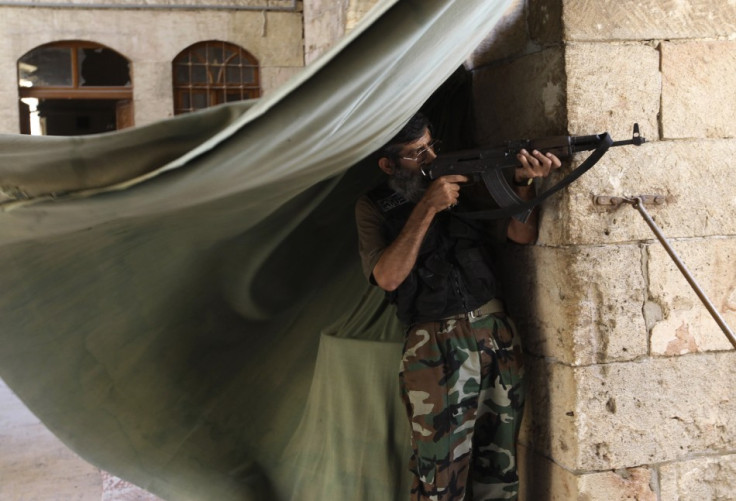US Repositions Mediterranean Forces as Obama Weighs Syria Strike

The United States is repositioning its Mediterranean naval forces in order to increase the White House's options as President Barack Obama is considering a military strike on Syria following an alleged deadly gas attack earlier this week.
The US navy is reportedly beefing up its presence in the region, although there has been no official confirmation.
"The defence department has responsibility to provide the president with options for all contingencies. That requires positioning our forces, positioning our assets, to be able to carry out different options - whatever options the president might choose," Defence Secretary Chuck Hagel told reporters en route to Malaysia.
Obama had earlier said the use of chemical weapons in Syria would be the "red line", forcing the US to act.
Western nations have pointed the finger at the Syrian regime while Russia, President Bashar al-Assad's staunchest ally, blamed rebels for the gas attack which is believed to have killed at least 1,300 people.
UN inspectors who are currently in Damascus have not been allowed to examine the affected regions despite widespread calls.
The US also fears that there could be another chemical weapons attack in Syria as the atmosphere is volatile.
Top national security advisers are to meet at the White House over the weekend to discuss the situation in Syria, and military options are said to be on the agenda.
The US has so far distanced itself from military intervention in the bloody 30-month Syrian conflict.
Any proposal for military action against Assad is likely to be vetoed by Russia at the UN Security Council.
Speaking to CNN's New Day, Obama said the recent attack in Syria "is clearly a big event of grave concern".
The Obama administration may also cite the 1999 Kosovo airstrikes which were carried out without a UN mandate but with Nato endorsement as a precedent for intervention in Syria.
A senior Washington official told the New York Times: "It's a step too far to say we're drawing up legal justifications for an action, given that the president hasn't made a decision. But Kosovo, of course, is a precedent of something that is perhaps similar."
The conflicts in both Kosovo and Syria have similarities, claiming the lives of scores of civilians; the two countries both have longstanding ties with Russia.
© Copyright IBTimes 2024. All rights reserved.






